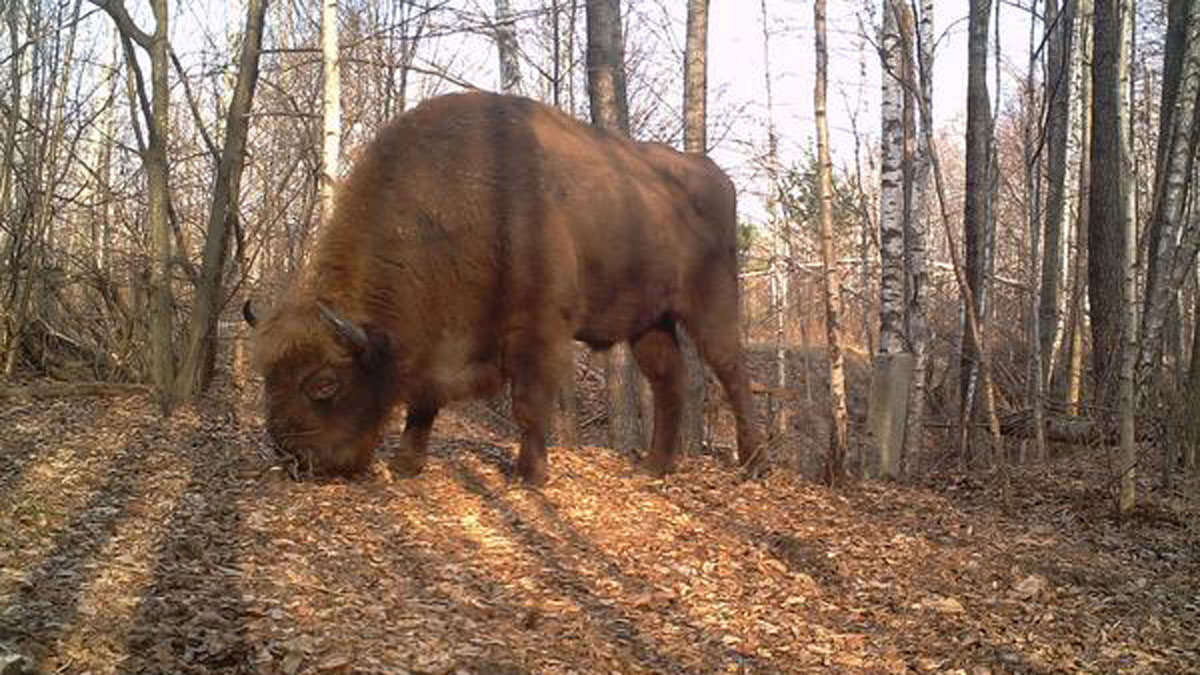Humans 'worse for nature than world's worst nuclear accident'
Wildlife in Chernobyl exclusion zone is flourishing - due to the enforced absence of human habitation

A free daily email with the biggest news stories of the day – and the best features from TheWeek.com
You are now subscribed
Your newsletter sign-up was successful
The site of the world's worst nuclear accident is now a haven for wildlife due to the enforced absence of humans, a new study has shown.
Some 116,000 people fled Chernobyl, located on the border of Ukraine and Belarus, after a nuclear reactor exploded on 26 April 1986. A further 220,000 were resettled when a 4,200 square kilometre exclusion zone was put in place around the site of the disaster.
With the help of colleagues from the Polesky State Radioecological Reserve in Belarus, researchers led by Professor Jim Smith from the University of Portsmouth examined data from aerial surveys counting large mammals including roe deer, elk, wild boar and wolves.
The Week
Escape your echo chamber. Get the facts behind the news, plus analysis from multiple perspectives.

Sign up for The Week's Free Newsletters
From our morning news briefing to a weekly Good News Newsletter, get the best of The Week delivered directly to your inbox.
From our morning news briefing to a weekly Good News Newsletter, get the best of The Week delivered directly to your inbox.
They found that wolves in particular were seven times more common in the exclusion zone than in the surrounding areas – this is due in part to the hunting activities common in Ukraine.
"The numbers of animals we see in Chernobyl is similar to the populations in uncontaminated nature reserves," Prof Smith said. "Whatever negative effects there are from radiation, they are not as large as the negative effects of having people there.
"We're not saying there weren't radiological effects at all, but we can't see effects on [animal] populations as a whole."
The message is striking, he added: "The everyday things we do, such as occupying an area, forestry, hunting and agriculture, are what damages the environment."
A free daily email with the biggest news stories of the day – and the best features from TheWeek.com
Lee Hannah, of Conservation International, told the New Scientist that Chernobyl is a living testament to the resilience of nature. "Wild places can come back if we give them a chance, but we don't want to rely on nuclear disasters to make this happen," he said.
The Guardian claims the findings run counter to previous hypotheses that chronic long-term exposure to radiation would hit animal populations. Critics have also questioned the link between larger animal populations and the lack of human habitation.
"Big mammals have been increasing for the last decades in most of Europe. So Chernobyl is no different,” Anders Pape Moller, of the University of Paris-Sud, told The Guardian.
He added: "The interesting question is whether the increase in Chernobyl is larger than say in Germany, France or Scandinavia."
-
 Minnesota's legal system buckles under Trump's ICE surge
Minnesota's legal system buckles under Trump's ICE surgeIN THE SPOTLIGHT Mass arrests and chaotic administration have pushed Twin Cities courts to the brink as lawyers and judges alike struggle to keep pace with ICE’s activity
-
 Big-time money squabbles: the conflict over California’s proposed billionaire tax
Big-time money squabbles: the conflict over California’s proposed billionaire taxTalking Points Californians worth more than $1.1 billion would pay a one-time 5% tax
-
 ‘The West needs people’
‘The West needs people’Instant Opinion Opinion, comment and editorials of the day
-
 Epstein files topple law CEO, roil UK government
Epstein files topple law CEO, roil UK governmentSpeed Read Peter Mandelson, Britain’s former ambassador to the US, is caught up in the scandal
-
 Iran and US prepare to meet after skirmishes
Iran and US prepare to meet after skirmishesSpeed Read The incident comes amid heightened tensions in the Middle East
-
 Israel retrieves final hostage’s body from Gaza
Israel retrieves final hostage’s body from GazaSpeed Read The 24-year-old police officer was killed during the initial Hamas attack
-
 China’s Xi targets top general in growing purge
China’s Xi targets top general in growing purgeSpeed Read Zhang Youxia is being investigated over ‘grave violations’ of the law
-
 Panama and Canada are negotiating over a crucial copper mine
Panama and Canada are negotiating over a crucial copper mineIn the Spotlight Panama is set to make a final decision on the mine this summer
-
 The rise of the spymaster: a ‘tectonic shift’ in Ukraine’s politics
The rise of the spymaster: a ‘tectonic shift’ in Ukraine’s politicsIn the Spotlight President Zelenskyy’s new chief of staff, former head of military intelligence Kyrylo Budanov, is widely viewed as a potential successor
-
 Why Greenland’s natural resources are nearly impossible to mine
Why Greenland’s natural resources are nearly impossible to mineThe Explainer The country’s natural landscape makes the task extremely difficult
-
 Iran cuts internet as protests escalate
Iran cuts internet as protests escalateSpeed Reada Government buildings across the country have been set on fire